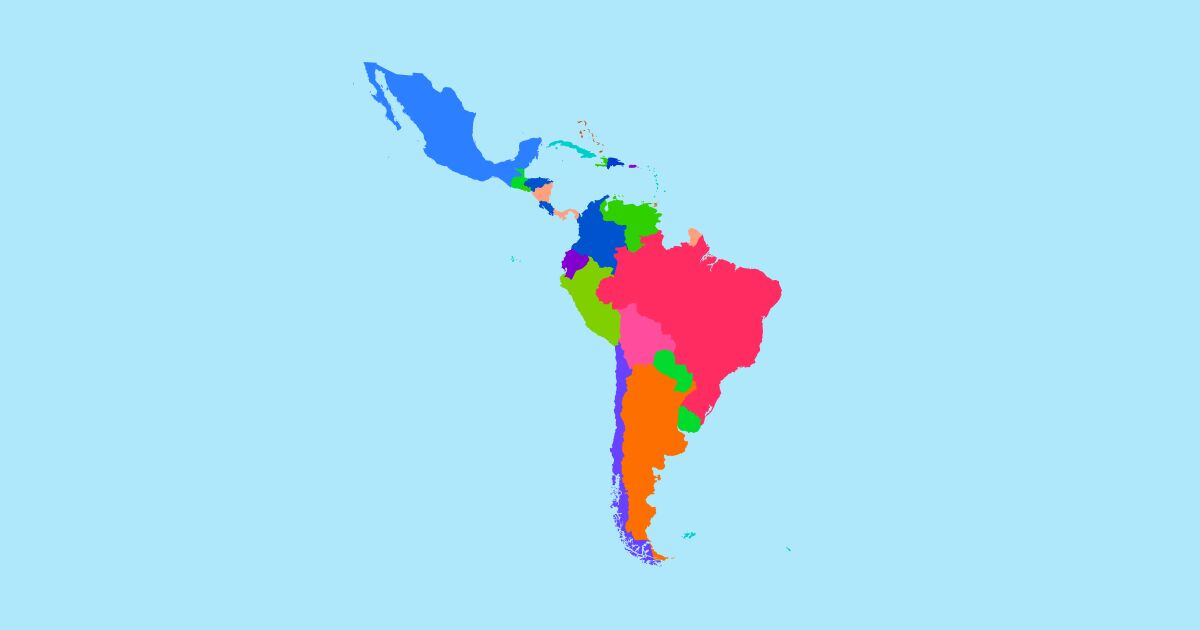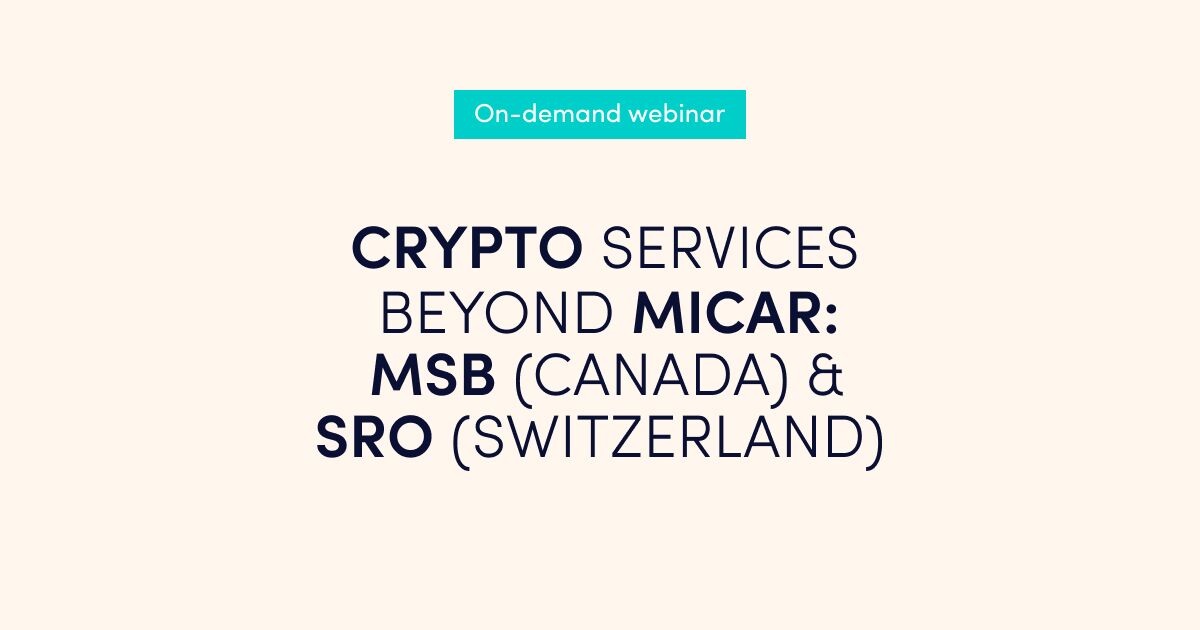If you’re a Virtual Asset Provider, or VASP licence holder, currently operating in Europe, you have a big decision to make.
Under the Markets in Crypto Assets Regulation, you’ll need to apply for a crypto assets service provider (CASP) licence to continue actively soliciting clients who are resident in the EU.
In most of the EU, the deadline for applying is 1 July 2026 — less than a year away. You’ll have to wind down your European operations if you haven’t applied by that date.
And if you’re one of the 1400+ VASPs registered in Poland, your situation is further complicated by the political situation. The President’s threat to veto key laws, including procedural rules around MiCAR implementation, means there’s still no clarity on transition, and no mechanism in place to secure your post-transition status.
So what happens next? How will transitioning from a VASP licence to a CASP licence impact your operations? More to the point, what are your options if you decide that a CASP licence isn’t right for you?
From VASP licence to CASP license: What’s going to change?
The short answer is: everything. Or, well, almost everything.
VASPs were regulated at national level, and the regime primarily focused on anti-money laundering compliance.
MiCAR, by contrast, harmonises the rules across the EU and sets far more stringent standards — around capital, around operational requirements, and around consumer and investor protection.
The CASP authorisation process is also much more thorough than it was for a VASP licence and can take up to 15 months.
We’ve written at length about MiCAR’s licensing and compliance requirements, so we won’t repeat ourselves here. That said, here’s a quick rundown of the key points:
- Minimum initial capital of €50,000 for Class 1 services, €125,000 for Class 2 services, and €150,000 for Class 3 services
- Thorough vetting of all individuals and corporates that might exercise control over the business, including an assessment of their suitability for the role they’ll be carrying out
- Ongoing capital equal to the higher of your Class minimum or 25% of your fixed overheads
- At least 2 locally-based individuals directing the business, as well as a local office with local staff
- Comprehensively documented policies and processes, including for AML/CFT compliance, IT resilience, conflicts of interest, market abuse, outsourcing arrangements, and consumer protection, including safekeeping and complaint-handling
- Regulatory audits and ongoing reporting obligations
If all this sounds extremely demanding, it’s because it is.
In Q1 2025, the European Securities and Markets Authority (ESMA) recognised only 32 CASP licence applicants. Of these, half are on the non-compliant list, meaning they’re failing to meet key requirements and are at risk of losing their status.
The difficulty is kind of the point. ESMA has specifically said that crypto asset service providers warrant a higher level of scrutiny:
‘There are no low-risk CASPs. While the scale of CASPs’ activity is typically less comprehensive compared to entities in traditional finance, CASPs often deal directly with retail investors and have a limited track record when it comes to regulatory compliance and supervision. They thus should be regarded as constituting a higher risk than entities operating in more mature sectors.’
Navigating the EU’s regulatory regime change: What are your options?
Some commentators have gone as far as saying the regime change from VASP licence to CASP has killed Europe’s crypto industry. But we’d argue that this is an exaggeration.
Yes, MiCAR makes it tougher — and intentionally so — to offer crypto asset services in the EU.
The flipside is that:
- It replaces a patchwork of homegrown regimes with a single, EU-wide standard, so cross-border compliance is less complex (though there’s an argument to be made that this is more about forcing certain types of crypto asset businesses out of the market than regulatory simplification)
- A single authorisation enables you to operate across all 27 EU member states
- Tougher rules promote consumer and investor confidence, increasing trust and opening the door to new opportunities
Of course, this doesn’t change the fact that transitioning is onerous and, to put it bluntly, may offer no tangible benefit to your business relative to the costs involved.
But, if that’s you, not all is lost. Provided you don’t intend to actively solicit clients who are resident in the EU, there are cost-effective and viable alternatives to MiCAR, namely SRO membership in Switzerland and MSB registration in Canada.
Swiss SRO membership: pros, cons, and key use cases
SROs are self-regulatory organisations. They regulate their members and, in turn, are overseen by FINMA, Switzerland’s financial services regulator.
The minimum capital requirements for SRO membership stem from company law, not specialised financial services legislation:
- CHF 20,000 (around €21,400) for limited companies (GmbH)
- CHF 100,000 (around €107,000) for stock corporations (AG / SA)
The application process and ongoing requirements are also less bureaucratic.
While you do need to prove you have robust anti-money laundering mechanisms, and submit regular reports, the regulatory burden is lower than it is under MiCAR. And, all being well, you can expect to be up and running in three to four months.
SRO membership’s biggest advantage over MSB registration is that, while not part of the EU or EEA, Switzerland is still at the heart of Europe. If your team is primarily based in Europe (or works in European time-zones) this makes it the most practical alternative to a CASP licence.
You’re also still able to reach EU consumers through reverse solicitation — though EU regulators may not take kindly if EU residents start making up a significant portion of your customer base.
Crucially, there are no restrictions on crypto custody (though there’s a 60-day limit on holding fiat funds). This means it’s the better alternative if you hold your own tokens or provide institutional custody services.
The tradeoff is that Switzerland’s cost of doing business is, well, high.
In 2024, Switzerland was the most expensive country in Europe. These costs add up — in terms of the salaries you must pay Swiss staff, overhead expenses like rent and utility bills, and other incidentals.
MSB registration: pros, cons, and key use cases
If proximity to Europe isn’t a must, registering as an MSB in Canada is more cost-effective than SRO membership.
There are no minimum initial or ongoing capital requirements and the application process is less bureaucratic (subject to robust AML checks).
Best of all, the cost of living is 71.7% lower than it is in Switzerland.
Canada’s biggest downside is that it’s extremely challenging to obtain a custody service licence, unless you’re a large, well-resourced firm.
This means MSB registration may not be a good option if you offer direct, full-service crypto custody services, as you’ll need to partner with exchanges or infrastructure providers, which will increase your overhead and, potentially, give you less control over your operations.
There are alternatives to MiCAR. But you must act now
There are no two ways about it. To continue actively marketing your crypto asset services to EU-based consumers, you need to apply for a CASP licence under MiCAR, with the significant upfront investment and ongoing obligations this entails.
That’s the bad news.
The good news? The VASP regime change, while inevitable, doesn’t have to spell the end for your crypto asset services business. Depending on your business model and goals, SRO membership and MSB registration can both be viable, cost-effective options that will enable you to continue operating with minimum disruption.
The key is not to dither and delay. With less than a year to go — and the regulatory limbo in Poland — you must decide now. And, at Advapay we can help you every step of the way: from picking the right jurisdiction, to document preparation and ongoing support.

Advapay at stake:
How can Advapay can assist you in launching your fintech business?
• Assistance in EMI/PI licencing in the EEA/UK
• Registration of MSB company in Canada
• Delivery of a comprehensive Core banking system encompassing back-office and white-label applications for end-users
• Assistance in payment infrastructure development
• BaaS-solutions in collaboration with our partners – EEA/UK licenced EMIs and PIs








